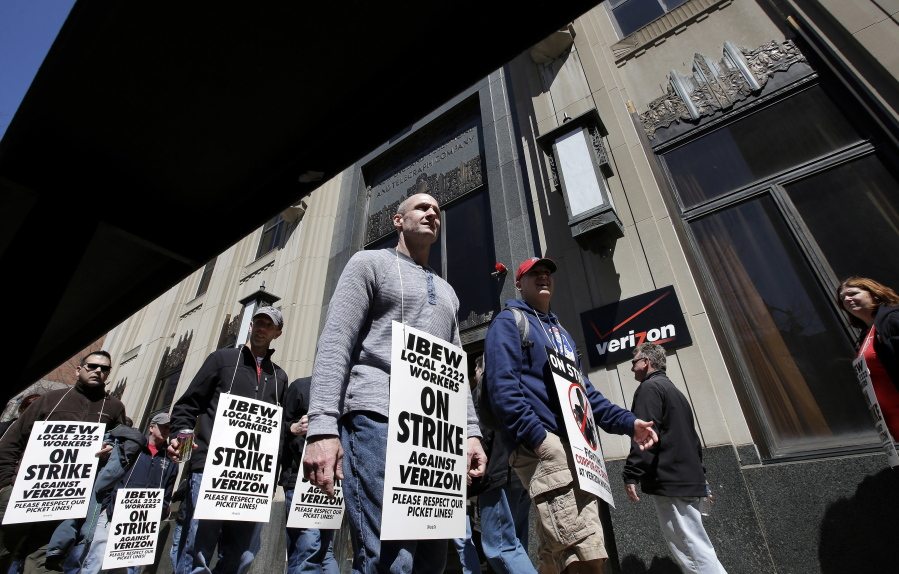NEW YORK — Democratic presidential candidate Bernie Sanders cheered on striking Verizon workers Wednesday after 39,000 landline and cable employees walked off the job.
Sanders told workers at a picket line in Brooklyn they displayed courage by standing up to the telecommunications giant.
“I know your families are going to pay a price,” Sanders shouted. “On behalf of every worker in America who is facing the same kind of pressure, thank you for what you’re doing. We’re going to win this thing!”
Sanders’ rival, Hillary Clinton, said in a statement earlier Wednesday she was “disappointed” that negotiations had broken down between Verizon and its unions.
“Verizon should come back to the bargaining table with a fair offer for their workers,” Clinton said. “To preserve and grow America’s middle class, we need to protect good wages and benefits, including retirement security.”
The two striking unions, the Communications Workers of America and the International Brotherhood of Electrical Workers, represent installers, customer service employees, repairmen and other service workers in Connecticut, Delaware, New York, New Jersey, Massachusetts, Pennsylvania, Rhode Island, Maryland, Virginia and Washington, D.C., for Verizon’s wireline business, which provides fixed-line phone services and FiOS Internet service.
Verizon spokesman Rich Young said the company was disappointed by the strike. He said Verizon has trained thousands of nonunion workers to fill in for striking workers and “we will be there for our customers.”
Keith Purce, president of CWA Local 1101 in New York City, said the unions have been without a contract for eight months.
Between 300 and 400 union members walked a picket line outside the company’s office in downtown Albany, where workers set up an inflatable “greedy pig” and rat.
In Philadelphia, about a hundred striking workers took to the streets near the company’s regional headquarters and chanted, “Scabs, go home!” at nonunion workers.
The unions say Verizon wants to freeze pensions, make layoffs easier and rely more on contract workers. The company has said that health care issues need to be addressed for retirees and current workers because medical costs have grown and that it wants “greater flexibility” to manage its workers.



